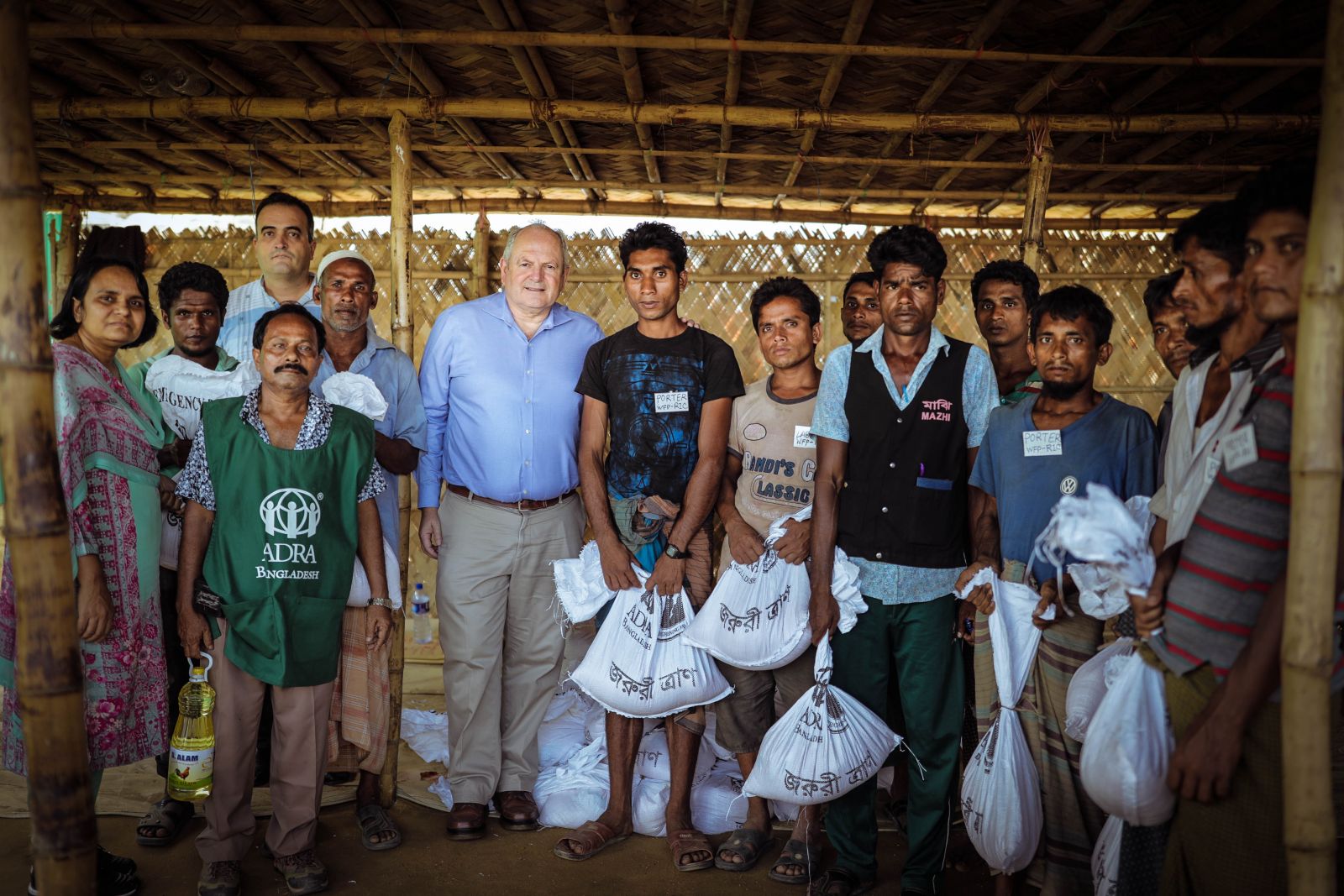Member of the Month: The Adventist Development and Relief Agency
In February, the Adventist Development and Relief Agency (ADRA) joined the CHS Alliance as its fifth global network, bringing 120 country offices as affiliate members. We sat down with ADRA’s president, Jonathan Duffy, and with Olivier Guth, director for global accountability to find out what motivated ADRA to join the CHS Alliance and how they are planning to push forward their commitment to quality and accountability.
ADRA is the global humanitarian organisation of the Seventh-day Adventist Church, and through their international network and partners, they work to improve the quality of life of millions throughout nine impact areas. In 2017 alone, ADRA provided assistance to more than 11 million people around the world thanks to their 60,000+ dedicated staff and volunteers.
“The Adventist Church is probably the most organised church in terms of structure, which enables us to mobilise people at every level. We have the ability to reach out to our folks through the congregations, and we are already present in most communities, which puts us in a truly unique position to respond to emergency needs,” says Jonathan, highlighting the global reach of ADRA.

But with such an extensive network come challenges as well. “As we have a network of over 120 countries, it’s not easy to keep everyone on the same page in terms of quality and accountability,” says Olivier. That’s where the CHS comes in. “When we had our 5-year strategic framework approved, a decision was made to respect the Core Humanitarian Standard for Quality and Accountability (CHS), thus here we are,” he explains.
For Jonathan, who worked on education and health care accreditation programmes in the South Pacific prior to his appointment as president of ADRA, accreditation was a strong incentive to join the CHS Alliance. “I want to drive a consistent standard across all of our ADRA network offices, so no matter which country you go to, you can expect the same level of responsible actions.” He believes that the CHS not only provides clear guidance for organisations on how to deliver aid and assistance better, but that it is also a strong international brand of excellence: “adhering to the CHS is a clear public statement to donors and partners that you are committed to high-quality humanitarian and development work.”
As a first step, in 2017, ADRA completed a benchmarking exercise with HQAI to better understand their existing alignment with the CHS, and to help them decide which verification options suit them best. Some country offices will likely choose to undertake certification, which could be linked to donor requirements, but as Jonathan points out an advantage of the CHS Verification Scheme is that “it has different levels and means of verifications, which gives flexibility for larger organisations like us, and enables to bring the CHS into our network”.
ADRA has already introduced the CHS into their internal licensing and accreditation system but now the real work begins to figure out how the harmonisation of the minimum core requirements for their licenced offices would work in practice. As Olivier explains, “we are having discussions about how to accommodate our small offices and meanwhile respect the standard. Data from our assessments will soon start coming in from the field, these are exciting times for us”.
The CHS Alliance’s commitment to working with their members to continuously improve the quality and accountability of aid-to better serve people in need- resonates with ADRA. As Jonathan says,
“For me it’s important to emphasise that engaging with the CHS is a journey and adhering to it is not an endpoint”.
